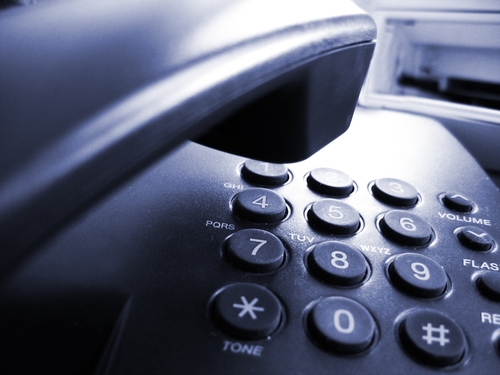GP practices revert to fax after 111 messaging bug

Exclusive GP practices have had to return to fax to receive notifications from NHS 111 after a bug with the automated electronic system meant messages informing practices about their patients’ calls to the helpline have been unreceived since last Tuesday.
NHS 111 providers declared a serious incident on 25 November after discovering that post event messages sent to practices using EMIS Web were not being received, but CCGs were only told to inform practices on the 26 November.
The problem is affecting EMIS practices across the country, though it was identified by North Western Ambulance Service, who provide 111 across Greater Manchester, Merseyside, Lancashire, and Cumbria.
There is not believed to be a major clinical risk to patients as notifications reverted to backup systems, including fax which the NHS has been trying to phase out, even running a ‘bonfire of faxes’ at its 2015 conference.
The bug was identified in EMIS’s interaction with the ’NHS Interoperability Toolkit’ (ITK), which routes primary event messages from 111 providers and logs them directly in practice’s clinical IT system, on 24 November.
NHS Blackpool CCG, who lead commissioning of NHS 111 in the North West, told Pulse since re-procuring the service ‘a process of moving PEM communications onto ITK has been underway, as this is a more robust messaging technology than was previously in place’.
They also confirmed that the bug was impacting EMIS practices across England, saying: ‘During Thursday 26th November it became apparent that this issue was affecting the sending of NHS 111 ITK PEM by NHS 111 service providers in other parts of the country
The message sent to practices by CCGs advises that practices should check the legacy systems they had previously used for 111 messaging.
It states: ‘Primary event messages are being sent and will continue to be sent using the previous (previous to ITK) message methodology (email, DTS or exceptionally fax) until the issue is resolved.’
‘GP Practices should note this and check their previous email / DTS accounts for the PEM.’
A spokesperson for Blackpool CCG told Pulse: ‘On initial investigation it was discovered that the issue started at 18:14 on 24/11/2015… At this point all parties were unaware of the scale or likely duration of the issue.’
They added: ‘NWAS has been trying to “move practices over” to non-fax messaging methods since they took over provision of the NHS 111 service in the North West.
‘With the failure of the ITK messaging, NWAS’s clinical IT system reverted to use the previous PEM message settings this was an automated failsafe that was enacted as the ITK PEM delivery failures occurred, which ensured PEM continued to be sent to the affected GP practices.’
NHS 111 had a troubled launch with providers ill-equipped to handle call volumes, and the NHS blocked any further reprocurements of the service untill this year to maintain ‘stability’ of the service.
NWAS was one of the providers to take over 111 delivery in 2013 as a ’stability partner’ after NHS Direct pulled out of all their contracts.
This article was amended on 11 December to make clear that the PEM messaging bug was only affecting practices using the EMIS Web system. A previous version reflected the issue was with the central NHS system.
An EMIS spokesperson told Pulse: ’We identified an issue with receiving 111 messages into EMIS Web, and agreed a workaround with the NHS 111 service to ensure messages were transmitted by fax. The issue has since been resolved and All practices have been able to receive NHS 111 messages successfully since Monday of this week (7 December).I would like to apologise to all users affected, and to assure them that we have taken steps to ensure this issue does not reoccur.’









